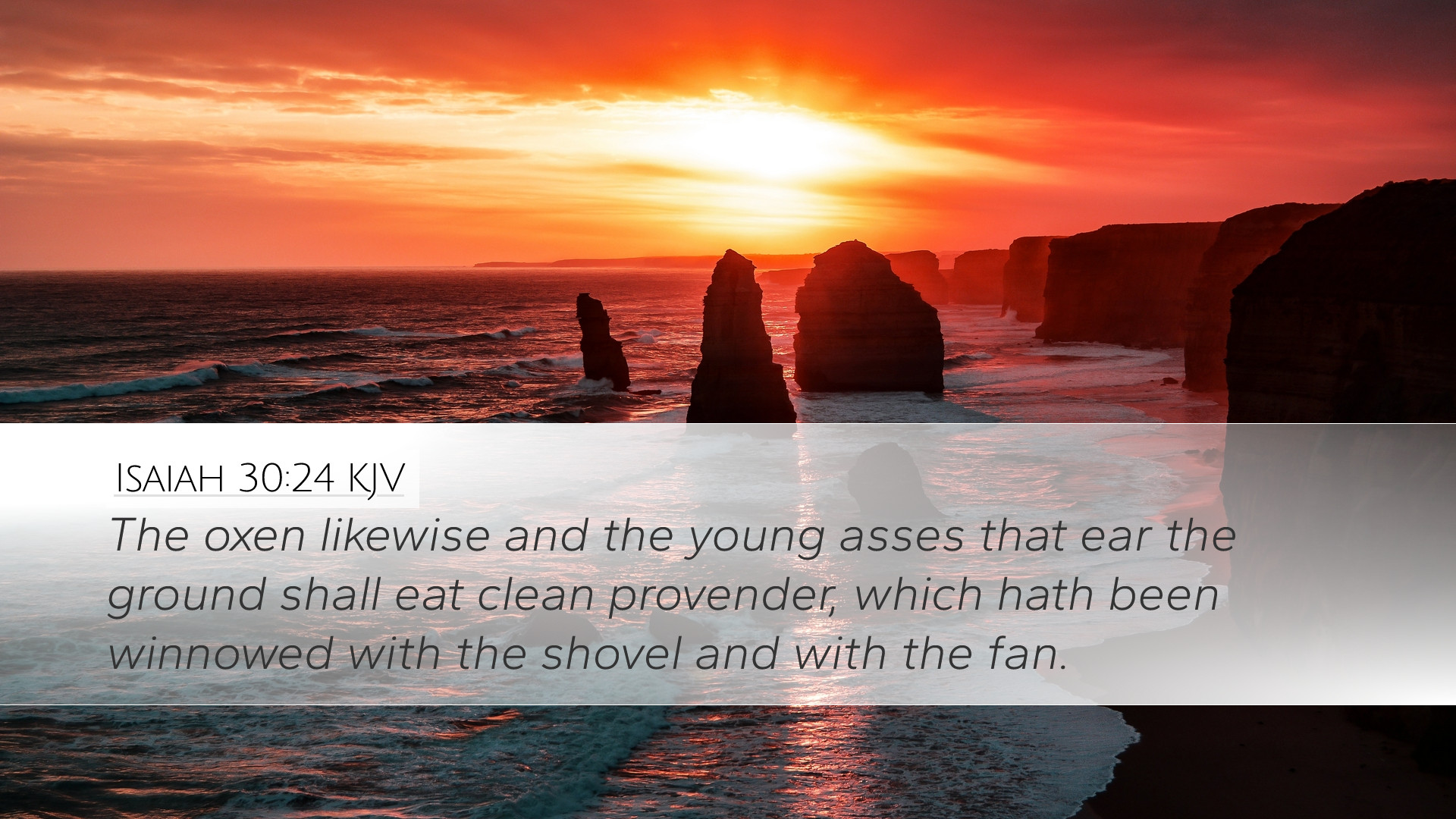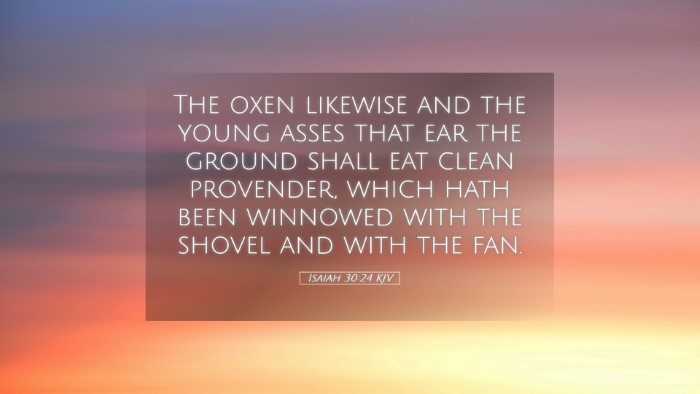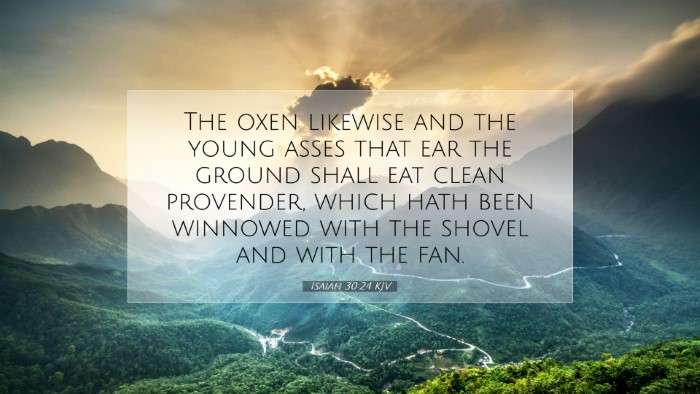Isaiah 30:24 Commentary
Verse Context: Isaiah 30:24 states: "And the oxen and the young donkeys that work the ground will eat seasoned fodder, which has been winnowed with the shovel and with the fork." This passage forms part of a broader message concerning Judah's reliance on Egypt for help rather than turning to God.
Introduction
The passage speaks to the blessings that accompany a renewed relationship with God. It stresses how God's provision extends even to the common aspects of life, symbolized by the oxen and donkeys that tend the fields. This commentary will draw from the insights of several public domain commentators to comprehend the theological and practical implications of this verse.
Thematic Insights
- Divine Provision: Matthew Henry emphasizes that the blessings of the Lord cover even the most mundane areas of existence. The oxen and donkeys represent laborers, and God's provision implies that He cares about our daily needs.
- Holistic Blessings: Albert Barnes remarks that the mention of winnowed fodder indicates God's blessings are of the highest quality. This reflects the spiritual truth that God provides His people not merely with the bare minimum but with the very best.
- Symbolism of the Oxen and Donkeys: Adam Clarke interprets these animals as symbolic of the humble and laborious people. God's provision for them signifies His attentiveness to those who work hard and toil in service.
Verse Analysis
1. Agricultural Metaphor: The reference to oxen and donkeys is significant. These animals are essential in ancient agrarian society. Matthew Henry notes that this imagery conveys God's promise of agricultural prosperity for His people, symbolizing a time of peace and security where even animals enjoy a well-cared-for existence.
2. Quality of Provision: The use of “seasoned fodder” introduces a notion of quality in God's blessings. Barnes explains that winnowing, a process to separate grain from chaff, illustrates how God's provisions are pure and beneficial, likening it to the spiritual nourishment God offers.
3. Continuous Blessing: Clarke points out that the description reflects an ongoing state of abundance. It signifies not just a one-time gift but a continual provision for those who live righteously and depend upon God.
Broader Context
The verse is nestled within a larger section of Isaiah where God criticizes Judah's dependence on Egypt and foreign alliances. The blessings promised here serve as a contrast to the futility of seeking help outside of God, reminding the nation of the profound consequences of their choices.
Theological Reflections
- The Sovereignty of God: The verse showcases God’s authority over provision. Commentators stress that it speaks of God’s sovereignty in supplying both physical and spiritual needs.
- The Call to Dependence: This passage invites reflection on who we rely on for assistance. Spiritual leaders are reminded of their dependence on God's grace rather than earthly alliances.
- Future Hope: The promise of provision also looks to a future fulfillment of God’s covenant with His people, a reminder that God will restore and bless those who return to Him.
Practical Applications
For pastors and leaders, this verse serves as encouragement to trust in God's provision over worldly methods. For students of the Bible, it prompts critical reflection on the nature of God as provider and the abundance He desires for His people.
1. Trusting God for Provision:
In ministries and personal lives, this text reinforces a reliance on God rather than on earthly means. It challenges leaders to foster environments where dependence on divine provision is taught and modeled.
2. Emphasizing Quality Over Quantity:
Just as God provides "winnowed" food, leaders should prioritize the quality of spiritual nourishment offered to their communities, encouraging wholesome teachings and practices that are beneficial and pure.
3. Awareness of Daily Blessings:
The ordinary and daily provisions we encounter should lead to thanksgiving and acknowledgment of God’s consistent care. We must not overlook the small blessings in our lives as they are significant demonstrations of God’s goodness.
Conclusion
Isaiah 30:24 serves as a profound reminder of God's overarching care and provision for humanity. It encapsulates the promise of abundant and quality blessings, comforting and reassuring the faithful audience of God's, sovereignty, and commitment. Understanding this verse through the lens of historical context, agricultural metaphor, and theological reflection facilitates deeper appreciation for God's eternal faithfulness.


